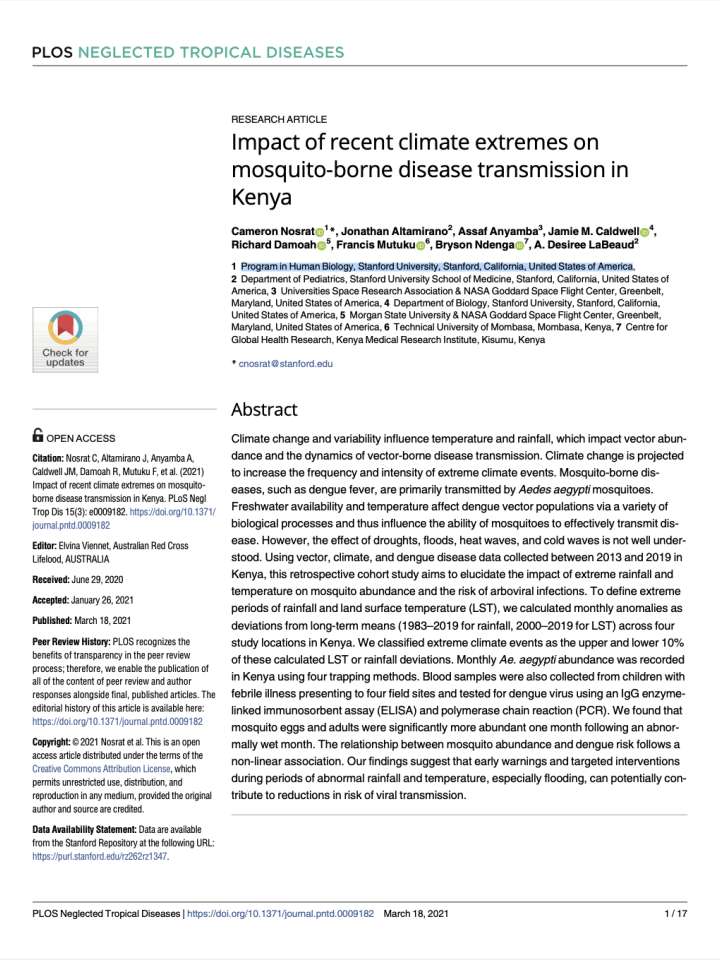Impact of recent climate extremes on mosquito-borne disease transmission in Kenya
This retrospective cohort study aims to elucidate the impact of extreme rainfall and temperature on mosquito abundance and the risk of arboviral infections, using vector, climate, and dengue disease data collected between 2013 and 2019 in Kenya. Climate change and variability influence temperature and rainfall, which impact vector abundance and the dynamics of vector-borne disease transmission.
Climate change is projected to increase the frequency and intensity of extreme climate events. Mosquito-borne diseases, such as dengue fever, are primarily transmitted by Aedes aegypti mosquitoes. Freshwater availability and temperature affect dengue vector populations via a variety of biological processes and thus influence the ability of mosquitoes to effectively transmit disease. However, the effect of droughts, floods, heat waves, and cold waves is not well understood.
The paper finds that mosquito eggs and adults were significantly more abundant one month following an abnormally wet month. The relationship between mosquito abundance and dengue risk follows a non-linear association. The findings suggest that early warnings and targeted interventions during periods of abnormal rainfall and temperature, especially flooding, can potentially contribute to reductions in risk of viral transmission.
Explore further
